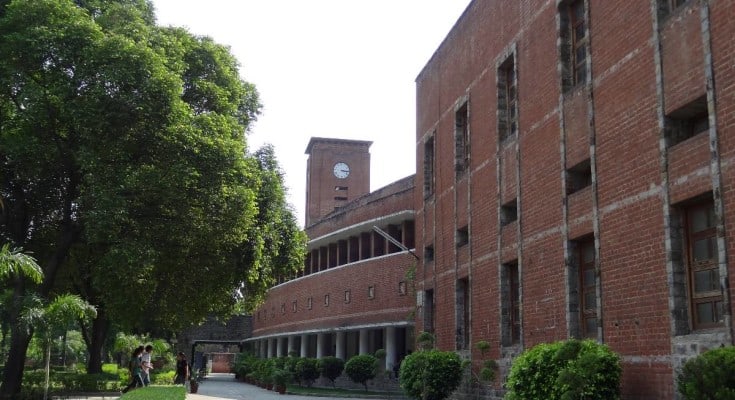Students pursuing B.Com (Honours) express their grievances as the results of the first-semester examinations leave students dissatisfied.
On 12th May 2020, results of the first-semester B.Com (Hons.) were declared. However, there were surfacing concerns regarding discrepancies in the same. Students have put forth the issue of disproportionate results i.e. the marks obtained in practicals and internal assignments not corresponding to the results of the odd semester examinations.
“I believe that my classmates have been marked incorrectly. For someone who scores eleven out of twenty-five in internals, getting a score of nine or ten in the core paper seems to be uncanny,” says a first-year student who responded on the condition of anonymity. The Varsity’s faulty evaluation has repeatedly been a cause of concern to students with respect to their results.
“Our seniors were not surprised when we told them about the discrepancies, this shows how deep-rooted and normalised this problem is,” says a student pursuing B.Com (Hons.) who wished to remain anonymous.
“The results have mostly been fine. Other than a few minor discrepancies in some subjects, the only major cause of concern has been the Microeconomics GE (Generic Elective) paper. Some students feel that the marking has been outrightly random. Students with perfect scores in internals and a well-written test have been marked far below their expectations,” says a first-year student pursuing B.Com. (Hons.) from Shri Ram College of Commerce (SRCC).
Moreover, the issue of revaluation also stands as an inconvenience amidst the contemporary COVID-19 pandemic. With shops closed, attaining photostats becomes a tedious task. Along with the technical constraints, the revaluation and rechecking procedures emerge as faulty systems as students often claim that the Varsity gathers revenue from its own faults.
The recurring glitches in the results along with the University’s proposal of conducting online examinations have been a worrying matter to the students of Delhi University.
Feature Image Credits: DU Beat Archives
Priyanshi Banerjee
[email protected]






 Exam results are generally not what most students look forward to. So when Delhi University decides to go ahead and make the experience even more harrowing, you can’t really blame them for being disgruntled.
Exam results are generally not what most students look forward to. So when Delhi University decides to go ahead and make the experience even more harrowing, you can’t really blame them for being disgruntled.